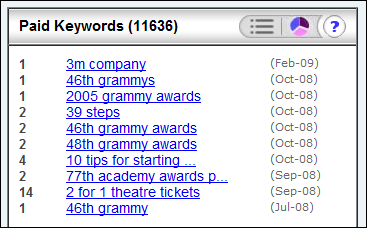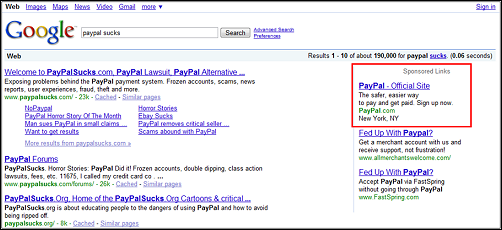 When search engine marketing enters the conversation in PR circles and vice versa, it’s usually search engine optimization, not pay per click that gets attention. However, there are numerous opportunities to use the on-demand visibility of Pay Per Click as a method to attract visitors to news related content.
When search engine marketing enters the conversation in PR circles and vice versa, it’s usually search engine optimization, not pay per click that gets attention. However, there are numerous opportunities to use the on-demand visibility of Pay Per Click as a method to attract visitors to news related content.

Publishers of online news and media use Pay Per Click to create instant search visibility for hot and trending news stories. Here’s an example of the NY Times using AdWords to promote a story about Twitter. You can also see from this screenshot via Spyfu, some of the topical and time sensitive keyword phrases they’ve bid on to drive traffic to news stories.
PR professionals can do the same with brand names, company names or executive names that often get searched on. PPC can be used to attract attention to specific news items, stories and content that is likely to be passed along once people get a chance to see it.
Deciding when PPC vs SEO is appropriate has to do with the situation and goals. Use of PPC advertisements are more of an on-demand and often times a reaction to other content displayed in the left side of the search results page. An example would be running ads on brand names that have negative information in the organic search results in order to tell the other side of the story. This can be useful to attract consumer attention away from negative listings.

As an example, here is a Search Results Page for “paypal sucks” where PayPal is bidding on and displaying an ad for its brand name.
SEO for public and media relations is a long term effort and should be viewed as an ongoing investment in time and resources. SEO is most effective when it’s built into the processes of creating and promoting news content. Using the right keywords in the right places as well as making sure the PR content is crawlable by search engine spiders compliments the need to attract inbound links.
The effect of ongoing SEO efforts (continued content creation, promotion and link building) is cumulative. The more news content on web pages and incoming links from other web sites, the wider the net that’s cast on the web from which to attract searchers. Results from SEO efforts are not often immediate so the decision to use SEO tactics should be appropriate to an ongoing commitment to see results.
The decision is not so much whether PR professionals should use SEO or PPC, but more likely how to use both together to achieve specific goals whether they are on-demand and reactive, or long term and proactive.
Do you know of some good PPC examples for public relations purposes? Please share in the comments. If your company is in need of professional search engine marketing services, be sure to visit the TopRank site for case studies and resources.
This is post #3 in a series of ten, “Top Ten SEO Tips for Public Relations Professionals“. For post #4 we’ll focus on “How to Choose the Best Keywords for Optimized Public Relations“.


